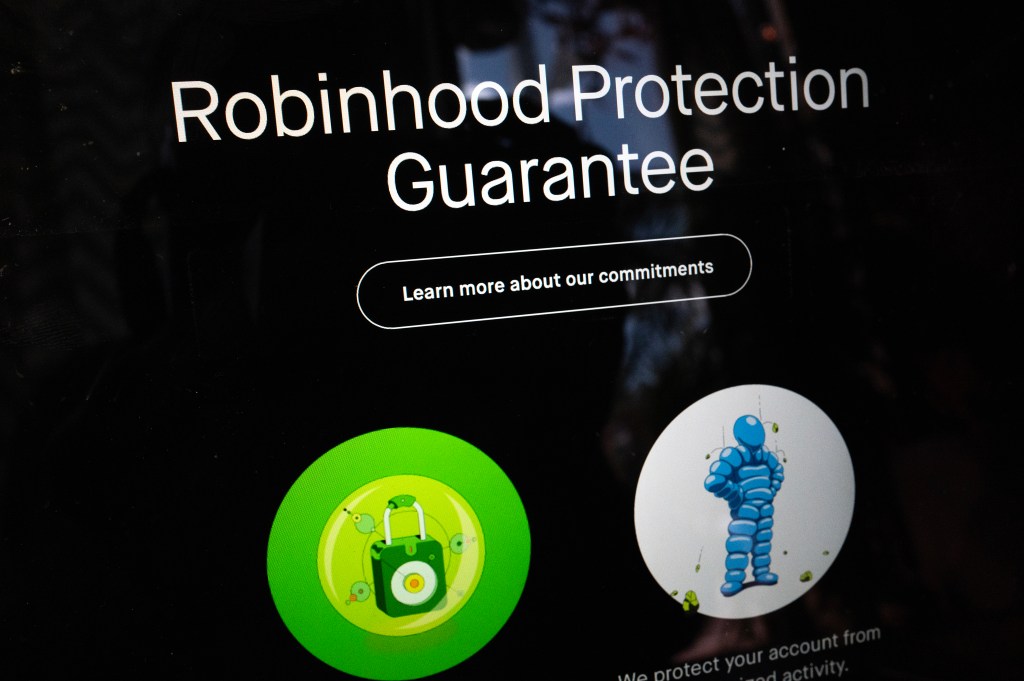Let’s take a look at some finalized rules, an enforcement action, the largest wealth transfer in history (probably) and Senator’s Warren’s message to Wells Fargo. Plus, UBS is seeking a banking license from the Office of the Comptroller of the Currency. Let’s dig in.
Robinhood buys TradePMR
Robinhood has bought the wealth management platform TradePMR. It could be the largest wealth transfer in history as it means Robinhood is bringing financial advisors directly to its 24 million customers.
The deal will allow Robinhood customers to connect more easily with registered investment advisers (RIAs) by bringing them into TradePMR’s ambit. “The TradePMR team has one of the strongest RIA networks in the industry,” said Vlad Tenev, chairman and CEO at Robinhood, in a prepared statement. “We’re excited to join forces to build a category-defining advisory platform for the next generation.”
Robinhood is tapped into the Millennial generation and Gen Z, bringing the company closer to serving these investors as their needs mature.
OCC charges Texas bank with AML, again
The OCC brought charges this week against Clear Fork Bank, N.A., of Albany, Texas, for what it called “unsafe or unsound practices related to the Bank Secrecy Act (BSA)/anti money laundering.” Specifically, the bank failed to correct previously reported BSA problems with which it had been charged back in 2021 by the same agency. The OCC also alleged the bank failed to properly monitor its third-party payment processor accounts.
As part of the judgment in this action, the OCC mandated that the bank establish a Suspicious Activity Review Program for monitoring transactions, accounts, customers, products, services, and geographic areas, plus make this program subject to board review on an ongoing basis.
Clear Fork Bank’s board must also appoint a Compliance Committee to outline and track the corrective actions needed to achieve compliance with the OCC’s order.
CFPB to oversee digital wallet apps
In finalizing its new rule to oversee digital wallet providers this week, the Consumer Financial Protection Bureau (CFPB) said it made important changes to its initial proposal. The agency had asked for public feedback when it first issued the proposal a year ago.
Specifically, the rule enables the agency to oversee big technology companies that offer digital wallet apps and other electronic money transfer services. It will be able to examine and supervise the nonbank companies’ use of what it called “vast quantities of consumer data,” plus see how they correct errors and monitor fraud on their systems, and why they shut down apps for certain consumers.
UBS seeks expanded US banking license
Swiss lender UBS is seeking wider permission to operate in the United States, a market it has earmarked for growth, by applying for a license under the supervision of the Office of the Comptroller of the Currency (OCC), according to a spokesperson, who confirmed a Handelsblatt report.
Such an approval would make it easier for UBS to make loans and take deposits across the nation.
UBS CEO Sergio Ermotti has made expanding in the US wealth market a key part of his strategy beyond the immediate integration of Credit Suisse, which the bank bought last year. The takeover has helped ramp up UBS’s US investment bank, which it plans to use to sign on entrepreneurs and rich individuals as clients for its private banking business.
The bank is a massive wealth management firm globally, but it lags the domestic competition in the US, where it operates through a network of more than 6,000 financial advisers who are not directly bound to the bank.
Sen. Warren: ‘Don’t lift Wells Fargo asset cap’
Senator Elizabeth Warren (D-MA) urged Federal Reserve officials, in a letter this week to reject a plea by Wells Fargo to lift an asset cap that has
stymied the bank’s growth since it was imposed in 2018.
The bank had submitted a review of the changes it had made to its risk management practices – a review conducted by a third party – to the central bank to review this past September.
But that review was presented around the same time as a sweeping enforcement action from the Office of the Comptroller of the Currency (OCC), which cited
deficiencies in Wells’ financial crimes risk management practices and anti-money-laundering internal controls, Warren noted.
“Removing Wells Fargo’s asset cap based on the recommendation of a third-party analysis that Wells Fargo purchased for itself and was provided days after a fellow regulator slapped the bank with a 40-part enforcement action would harm consumers, threaten our financial stability, and reward a bad bank for continuing a long history of abusive and reckless practices,” Warren wrote to Fed Chair Jerome Powell and Vice Chair for Supervision Michael Barr.

















